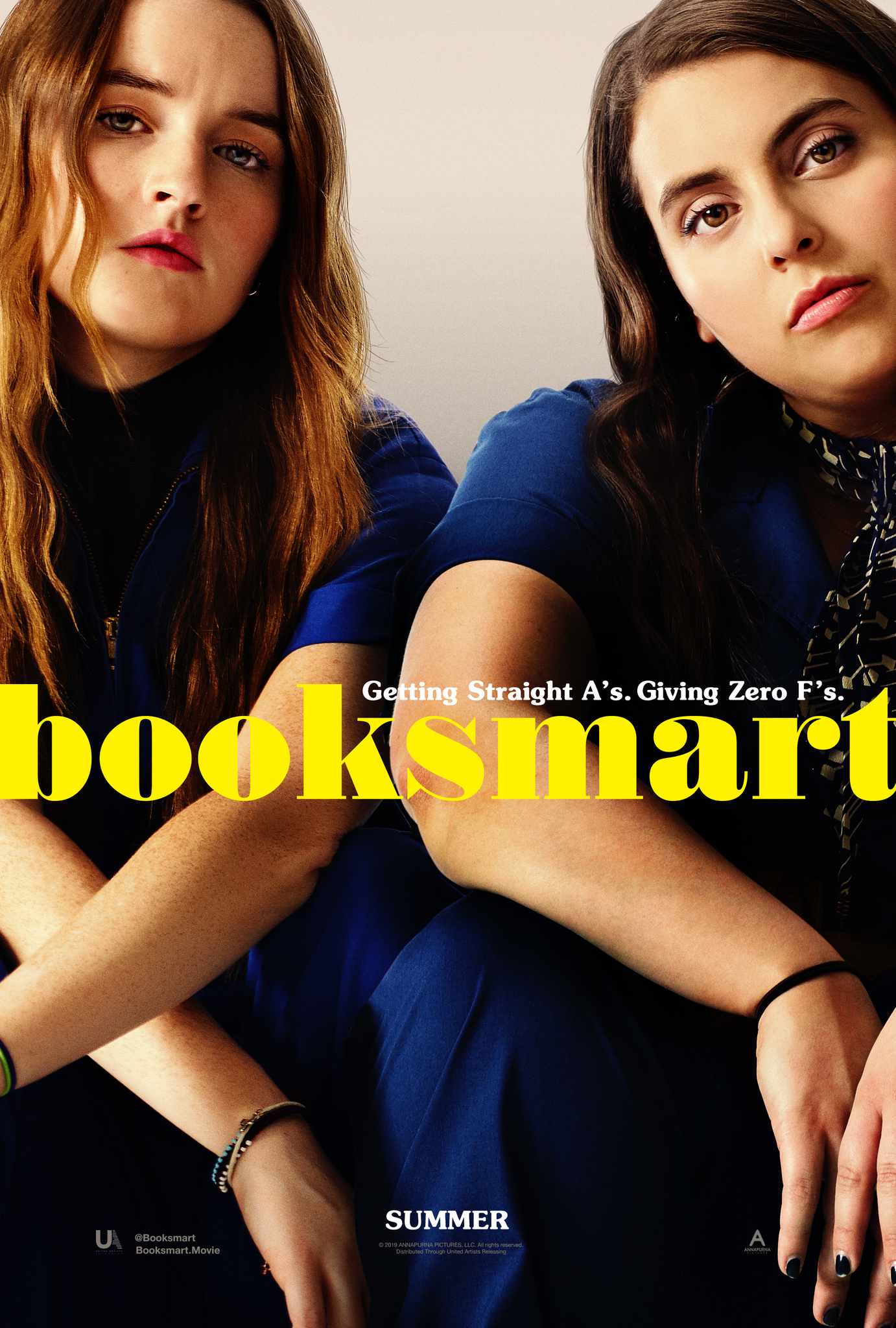Film Review: Booksmart (2019)



Is Booksmart an accurate portrayal of the modern high school experience? I don’t feel qualified to answer that question as I’ve been out of high school for almost 25 years (good lord!), but here’s what I do know: even a quarter-century removed from the setting, I identify more honestly with Booksmart than I ever did with any of the John Hughes or Judd Apatow high school films it gets compared to.

Yes, we all love The Breakfast Club (1985) and Sixteen Candles (1984), but those nostalgic classics feel like pop culture anecdotes compared to contemporary counterparts like Booksmart and last year’s Eighth Grade. Hughes (and many, many like him), who relied on semi-manufactured social and economic cliques that jived nicely with Reaganomics and comfortable levels of class separation, seems almost archaic by comparison. Olivia Wilde, in her feature directorial debut, doesn’t quite shun Hughes-ian (or Apatow-ian) tropes, but uses them in a better and more intelligent way.

Foremost, what sets Booksmart apart from the “get laid and/or high at all costs” comedies of yesteryear, is that it’s told from a true female perspective – not (and this is important) from a male’s assumption of a female perspective. Molly and Amy (Beanie Feldstein and Kaitlyn Dever) are not clueless imbeciles spouting vapid, nonsensical idioms, but overachievers who’ve avoided partying in favor of college preparation. In a different movie, they’d be shunned as nerds, but their confidence and lack of regard for what others think of them destroys traditional classifications.

Since Booksmart has done away with cliques and social hierarchies, Molly and Amy (well, Molly) has sorted everyone into new categories: those going to prestigious colleges, and those who aren’t (i.e. those who took school seriously and those who didn’t). When she learns that several classmates who partied instead of studied got into big schools anyway, it’s almost too much for her to bear. On the eve of graduation, and to make up for lost time, it’s decided (well, Molly decides) that the pair will attend their first party.

What follows is part buddy road movie and part coming of age comedy, but Wilde never lets it fall completely to one side. Not all the gags work (some seem thrown in just to raunch things up a bit), but most do, and they’re smart to boot. It bases the relationship between Molly and Amy on more than goals like horndogs trying to lose their virginity or stoners trying to get high. It’s grounded in relatable emotion and genuine affection. You know, like the kind real friends have. When their friendship comes to its inevitable boiling point, explosive feelings come pouring out in one long take, very well crafted take.

Booksmart works so well because it knows exactly what it is and what its lineage is, but knows enough to subvert and update that lineage while still keeping enough of it on hand to feel familiar. It’s also a much more responsible film than the 80s and 90s standards that get the credit for defining entire generations. Molly and Amy aren’t surface level “types,” and neither are the supporting cast. They’re people, not cliches – no matter how hard they try to be.
